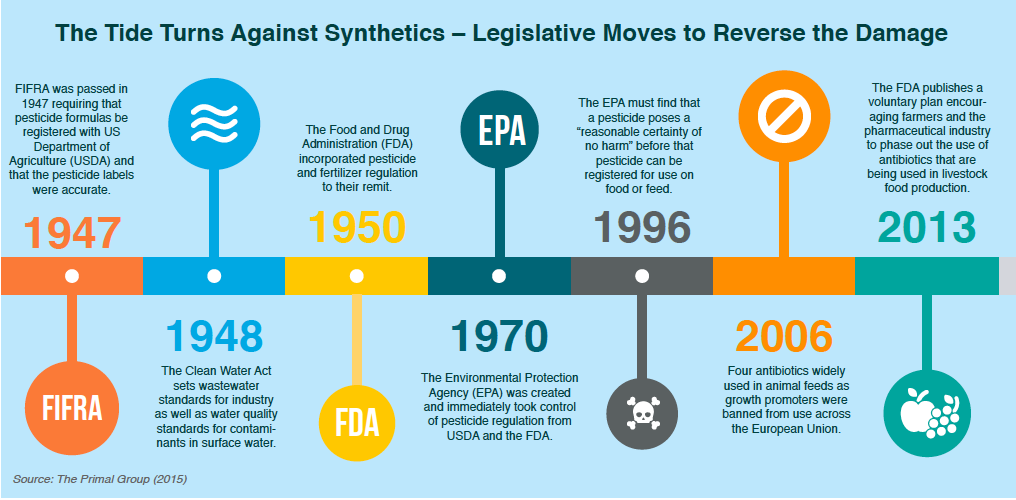Agricultural chemicals for crop care, including fertilizers and pesticides, are one of the most widely used chemicals on the planet today. Designed to kill destructive organisms and synthetically increase yields, they are deliberately released into the environment in a broad-scale approach that results in significant runoff. In fact, over 98% of sprayed pesticides, 95% of herbicides and 65% of fertilizers reach a destination other than their target species, causing chronic impacts on human health, livestock, wildlife, pollinators and beneficial insects – all of which are essential to a stable, healthy and productive ecosystem.
We need innovation and technology in crop care to supply food for our rising population. For the past century in global agriculture, the most damaging solutions were also the most accessible, cheap and globally utilized. Today, focusing on short-term gains over the long-term health of our planet is no longer a viable option. Consumers worldwide are calling for action. As people become more educated and aware of agriculture’s more dangerous traditions, pressure is placed on producers and their governments to change archaic policies in favor of organics. This further expedites the industry’s transition to safer and sustainable practices around the world.
87 countries have now introduced legislation that supports the practice of organic agriculture in strengthening our food supply. The European Union, keen to promote a greater degree of responsibility on its Common Agricultural Policy, uses 40% of its overall budget to provide a layer of financial support to farmers who enhance sustainability in their management of natural resources through the use of natural alternatives in crop protection. The US Environmental Protection Agency are also strengthening their pesticide approval system, now requiring more than 100 certified and approved scientific studies before they even consider welcoming a new pesticide to the domestic market. This is truly becoming a global movement.
One of the most popular pesticides currently on the market is glyphosate, with 9.4 million tonnes utilized since 1974. That is enough to spray half a pound of Roundup onto every cultivated acre of land on the planet, despite the World Health Organization labelling the chemical as ‘probably carcinogenic to humans’. Environmental scientists worldwide even argue that it kills all plants, algae bacteria and fungi in a crop’s vicinity, creating drastic knock-on effects for biodiversity. As a result, two-thirds of the European Union are supporting a ban on glyphosate. Last week, the European parliament voted to oppose its approval where alternative methods exist, in pre-harvest agricultural use as well as in public parks and in playgrounds. Up to 150 MEPs in Strasbourg have given urine samples to see if they contain residues of the ingredient, ahead of a symbolic vote on prohibition later this month.
The model of agricultural production used today is unsustainable in the face of the new food security challenges of the 21st Century. Making agriculture greener and more efficient will be achieved by new legislation supporting the use of natural resources that tackle climate change, safeguard biodiversity and ensure a sustainable food supply for everyone. We must look towards innovation in sustainable agriculture to ensure the needs for everyone are met in a safe and conscious way.
